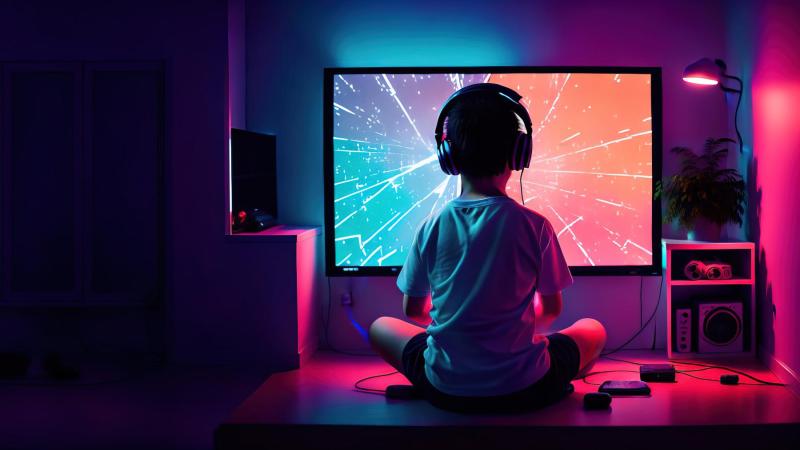
Video gaming can be fun and engaging, but in some cases, what starts out as a hobby, turns into an addiction, interfering with all aspects of life.
In 2019, The World Health Organisation added gaming disorder to its list of diseases, recognising it as a behavioural addiction.
As a psychiatrist working on the front line, Dr Kim Le sees the psychological effects that too much screen time can have on the brain.
He says that severe cases of screen addiction are leaving parents at breaking point with young people not sleeping or eating or refusing to go to school because of their obsession with playing online video games.
Dr Kim Le uses this analogy:
“There was a Macquarie University study that found that approximately 2.8 percent of all students – teenagers in high school – had gaming disorder, and so, if you apply that to the whole nation, you’re looking at about 100,000 Aussie teenagers who have this problem, so that’s like filling up the MCG on grand final day.”
In this Life Ed podcast for parents, Dr Le outlines what constitutes a gaming disorder and explains the cognitive effects gaming addiction is having on some young people. He unpacks how video game designers try to hook young people into forming a habit and shares strategies on how to stop gaming addiction from taking hold.
While studies suggest that gaming disorder affects only a small proportion of people who engage in digital, it is a growing problem, and many families are dealing with gaming overload, if not addiction.
Find out how you can be alert to the signs that gaming is getting out of control for your child or teen, and what to do to manage the issue before it becomes hazardous to health and wellbeing.
Download gaming addiction tip sheet for parents here
Download the gaming addiction tip sheet for children here
 Dr Kim Le
Dr Kim Le
Psychiatrist, gaming addiction expert, TEDx speaker
Dr Huu Kim Le is a child and adolescent psychiatrist and internet gaming disorder specialist who sees patients from all over the country via his telehealth private practice CGI Clinic. Kim completed his training in Sydney and worked as a consultant psychiatrist for the Women’s and Children’s Health Network in South Australia for three years. In 2015, Kim received a federal grant to work in and investigate gaming disorder treatment clinics in Singapore, India and South Korea. He is passionate about helping others to enjoy gaming in a healthy way, with his clinic and website supporting families and increasing awareness about internet gaming and overall health. Kim was the host of an innovative SBS On Demand interactive documentary, Are You Addicted to Technology? In 2016, he presented an illuminating TEDx talk titled, The spell of digital immersion: Do babies really need the internet?